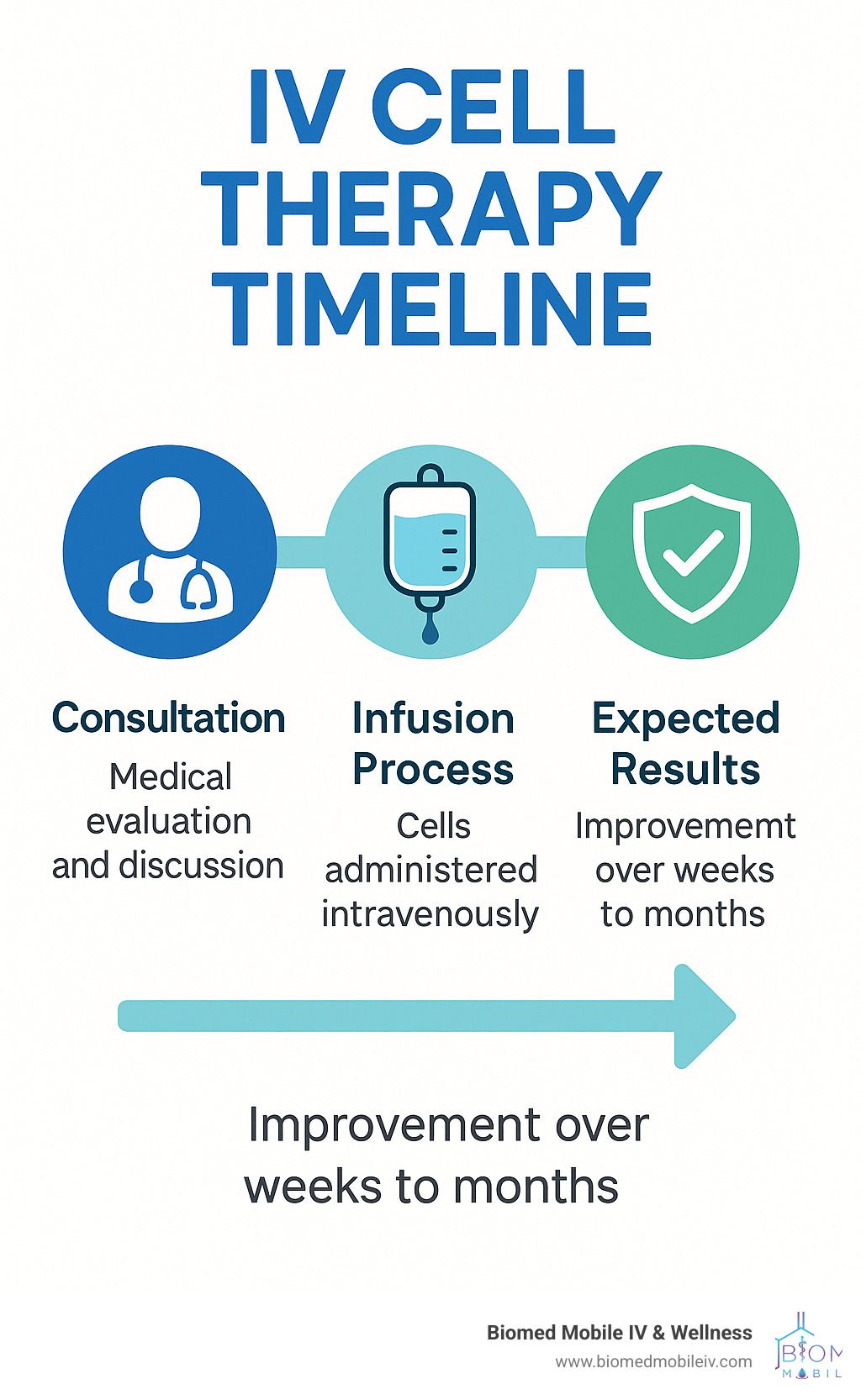Beginner’s Guide to IV Cells: Everything You Need to Know
Understanding IV Cell Therapy: The Basics
Have you ever wondered how your body might heal itself with just a little extra help? That's where IV cell therapy comes in. This remarkable treatment involves delivering healing cells directly into your bloodstream through an intravenous drip, allowing them to travel throughout your body to reduce inflammation and support natural tissue repair.
"In particular, a stem cell IV treatment has gained attention as a minimally invasive treatment option that leverages the body's natural ability to heal itself."
What Is IV Cell Therapy?
When you receive an IV cell treatment, you're getting much more than just fluids. Unlike traditional IV drips that deliver only nutrients or medications, IV cell therapy introduces active cellular components that can help your body heal from within.
These therapies work by delivering therapeutic cells directly into your bloodstream, where they can circulate freely and target areas that need help. The cells work in remarkable ways - they modulate your immune system, fight inflammation, and kickstart your body's own repair mechanisms.
Most commonly, doctors use mesenchymal stem cells (MSCs) for these treatments. These powerful cells might come from umbilical cord tissue, bone marrow, or adipose (fat) tissue. The beauty of delivering these cells intravenously is that they can potentially benefit multiple systems in your body at once, rather than just treating a single area.
I'm Travis Sugg, founder of Biomed Mobile IV & Wellness. With over a decade of experience as a paramedic and licensed IV therapy provider, I've seen how these advanced IV cell therapies can safely support overall health. My background in emergency medicine gives me a unique perspective on delivering these specialized wellness solutions to clients throughout Colorado.

Whether you're dealing with an autoimmune condition, recovering from an injury, or simply looking to improve your overall wellness, IV cell therapy offers a non-invasive option with potential whole-body benefits. The cells travel throughout your system, seeking out areas of damage or inflammation and working to restore balance naturally.
From stem cell treatments to exosome therapy and specialized cytogenetics media, these innovative approaches are opening new doors for people seeking alternatives to traditional treatments. And the best part? The procedure is relatively simple and comfortable, making it accessible for many people looking to support their health journey.
What Is an IV Cell and How Does It Work?
When you hear about IV cell therapy, we're talking about a remarkable process where healing cells are delivered directly into your bloodstream through a simple IV line. Unlike targeted injections that focus on one area, this approach allows these therapeutic cells to travel throughout your entire body, making it ideal for addressing widespread issues or conditions affecting multiple systems.
There are two main types of IV cell therapies you might encounter:
- Autologous therapy: Uses your own cells harvested from your body (typically from bone marrow or fat tissue)
- Allogeneic therapy: Uses cells from a carefully screened donor (commonly umbilical cord tissue)
Allogeneic therapy, particularly using umbilical cord-derived mesenchymal stem cells, offers a significant advantage. These cells are what scientists call "immune-privileged," meaning they're naturally designed not to trigger rejection when introduced to someone else's body. As researchers have noted: "One of the critical advantages of using umbilical cord tissue-derived stem cells is their immune-privileged status."
The IV cell approach works on what's known as the superposition principle—where cells introduced into your bloodstream can travel throughout your body and have beneficial effects wherever needed. Think of it like sending out millions of tiny helpers that can find their way to problem areas on their own.
The Science Behind IV Cell Circulation
IV cells don't just wander aimlessly through your bloodstream. They're actually guided by specific signals from tissues that need help—a fascinating process called "homing."
Here's what happens after your infusion: damaged or inflamed tissues in your body release chemical signals (like cytokines and chemokines). These act like distress flares, attracting the infused cells to areas of inflammation or injury. Once the cells arrive where they're needed, they release paracrine factors—special bioactive molecules that positively influence surrounding cells.
This natural homing ability explains why IV cell therapy can help with so many different conditions at once. The cells instinctively migrate to where your body needs them most, whether that's inflamed joints, damaged tissue, or organs under stress.
IV Cell Mechanisms at the Cellular Level
At the microscopic level, IV cell therapy works through several key mechanisms that help restore and refresh your body:
Mitochondrial boost: Some IV cell therapies, especially those involving NAD+ (nicotinamide adenine dinucleotide), directly support your cellular powerhouses—the mitochondria. As one NAD+ provider explains: "NAD+ pays the toll for the express lane of vascular function" by enhancing your cells' energy production. This can help you feel more energetic and support overall cellular health.
Antioxidant response: Many IV cell treatments deliver powerful antioxidants that fight harmful oxidative stress. For example, glutathione—often called the "master detoxifier"—helps neutralize free radicals that can damage your cells and accelerate aging.
Immune modulation: Rather than simply suppressing or stimulating your immune system, IV cells (especially mesenchymal stem cells) help normalize immune function. This makes them valuable for both autoimmune conditions where the immune system is overactive and situations where immune support is needed.
Tissue regeneration: Through the secretion of growth factors and direct cell-to-cell communication, IV cells can stimulate your body's natural repair processes, potentially helping tissues heal faster and more completely.
The beauty of IV cell therapy lies in its holistic approach—working with your body's natural systems rather than forcing a specific response. This makes it particularly promising for complex conditions that haven't responded well to conventional treatments.
Learn more about the different types of IV therapy or explore the latest scientific research on stem cell IV safety to understand why this approach has gained so much attention in recent years.
Types of IV Cell Therapies You May Encounter
The field of IV cell therapy includes several distinct approaches, each offering unique benefits for different health concerns. Let's explore the main types you might come across during your wellness journey:
Stem Cell IV Cell Therapy
When we talk about stem cell IV cell therapy, we're referring to the intravenous delivery of powerful, regenerative stem cells—most commonly mesenchymal stem cells (MSCs). These remarkable cells are the body's natural repair system, with abilities that sound almost magical but are firmly rooted in science.
MSCs work their healing magic in several ways. They can transform into specialized cell types when needed, release compounds that calm inflammation, produce growth factors that kickstart healing, and help regulate immune responses that might be out of balance.
Where do these powerful cells come from? There are several sources:
Umbilical cord tissue provides young, potent cells that are "immune-privileged"—meaning they're less likely to trigger rejection when used from a donor. Many patients prefer this option because it doesn't require any harvesting procedure on their part.
Bone marrow offers cells that can be collected from your own body (autologous), though the extraction process involves a needle aspiration that some find uncomfortable.
Adipose (fat) tissue gives us another self-sourced option that's relatively easy to collect through a mini-liposuction procedure.
During a typical stem cell IV cell treatment, you might receive over 300 million cells, carefully administered at about 1 cc per minute. The whole process usually takes 2-3 hours and may be spread across multiple days for best results.
IV Cell Exosome Therapy
Exosome therapy represents one of the most exciting advancements in the IV cell world. Think of exosomes as tiny messengers—nanometer-sized bubbles released by stem cells that carry important cellular instructions.
"Exosome IV therapy uses regenerative exosomes—nanometric vesicles released by stem cells—administered directly into the bloodstream to transfer proteins, lipids, and genetic information for targeted healing and regeneration," as one provider explains.
What makes exosome IV cell therapy special? For starters, you're receiving just the beneficial communication particles, not entire cells. Their tiny size allows them to circulate more easily and penetrate deeper into tissues. They also tend to face fewer regulatory problems than whole-cell therapies, and they generally pose fewer immune-related concerns.
These microscopic messengers deliver regenerative instructions throughout your body, potentially triggering healing responses in multiple systems simultaneously.
Supportive IV Infusions & Cytogenetics Media
Beyond direct cellular therapies, the IV cell world includes specialized products used in both clinical and research settings:
IV-Cell Cytogenetics Media serves an important diagnostic role. This specialized solution helps medical professionals culture and analyze blood cells to diagnose various conditions. As one manufacturer notes: "IV-Cell universal culture media enables simultaneous culturing of all four hematopoietic cell lineages, reducing the need to select a single lineage and improving diagnostic accuracy for hematological diseases."
NAD+ IV Therapy supports your cells at their most fundamental level. While not technically a cellular therapy, NAD+ (nicotinamide adenine dinucleotide) is a coenzyme found in all living cells that plays crucial roles in energy production, DNA repair, and cellular communication. Many patients report significant improvements in energy and mental clarity after NAD+ infusions.
IV Vitamin and Nutrient Infusions provide essential building blocks that cells need to function at their best. Popular options include vitamin C for immune support and collagen formation, B-complex vitamins for energy production, glutathione for powerful antioxidant protection, and magnesium for supporting hundreds of cellular processes.
At Biomed Mobile IV & Wellness, we offer a range of these supportive infusions that can complement or prepare your body for more advanced IV cell therapies. Whether you're looking to boost your immune system, increase energy, or support your body during recovery, these targeted nutrients delivered directly to your bloodstream can make a noticeable difference in how you feel.
Learn more about IV drip health benefits
Benefits, Outcomes, and Conditions Treated
When it comes to IV cell therapy, the potential benefits touch nearly every system in your body. From head to toe, these powerful treatments are showing promise for a wide range of conditions, giving hope to many who have struggled with chronic issues.
Key Benefits of IV Cell Therapy
The beauty of IV cell therapy lies in its whole-body approach. Unlike medications that target specific symptoms, these treatments work with your body's natural processes to promote healing from within.
Tissue regeneration is perhaps the most exciting benefit. Your body is constantly replacing and repairing cells, but this process slows with age and disease. IV cell therapies can kickstart this natural regeneration, helping with joint and cartilage repair, skin rejuvenation, muscle recovery after intense workouts, and even nerve regeneration in some cases.
Many patients describe significant pain relief as one of the first noticeable benefits. Whether you're dealing with chronic joint pain that keeps you from enjoying your favorite activities, stubborn back pain that affects your daily life, neuropathic pain that conventional treatments haven't touched, or inflammatory conditions that flare up unpredictably – IV cell therapy may offer relief where other approaches have fallen short.
The immune system modulation effect is particularly fascinating. Rather than simply suppressing your immune system (like many medications do) or boosting it indiscriminately, IV cells help normalize immune function. This balanced approach makes them valuable for autoimmune conditions like rheumatoid arthritis, lupus, and Hashimoto's, where the immune system is overactive, as well as for chronic inflammatory disorders and immune deficiencies.
Many patients also report a welcome boost in energy and vitality, especially with NAD+ and nutrient-rich IV cell therapies. Imagine having improved mental clarity that helps you focus at work, increased energy that lasts throughout the day, better sleep quality that leaves you feeling refreshed, and improved physical performance whether you're an athlete or just want to keep up with your kids or grandkids.
Conditions Commonly Treated with IV Cell Therapy
The range of conditions that may benefit from IV cell therapy is expanding as research continues, but several categories have shown particularly promising results:
For neurological conditions, these therapies offer hope where few options existed before. Patients with Multiple Sclerosis, Parkinson's Disease, Traumatic Brain Injury, and those recovering from strokes have reported improvements. Some early research even suggests potential benefits for Alzheimer's Disease.
Those with autoimmune disorders often find relief when their bodies have been at war with themselves for years. Rheumatoid Arthritis, Lupus, Crohn's Disease, Psoriasis, and Multiple Sclerosis patients may experience reduced inflammation and symptom improvement.
Orthopedic conditions respond particularly well to these treatments. Whether you're dealing with Osteoarthritis that makes everyday movements painful, recovering from Sports Injuries, managing Degenerative Disc Disease, fighting Tendonitis, or struggling with persistent Joint Pain, IV cell therapy may offer relief and improved function.
For metabolic and systemic issues like Chronic Fatigue Syndrome, Fibromyalgia, Lyme Disease, Chronic Inflammation, and Metabolic Syndrome, these therapies address underlying cellular dysfunction rather than just masking symptoms.
One particularly exciting area of research involves NAD+ IV cell therapy for brain health. Recent clinical trials have shown promising results for neurodegenerative conditions like Parkinson's disease. NAD+ supports mitochondrial function in brain cells, earning it the nickname "miracle molecule" for cellular health and energy.
"NAD+ is termed the 'miracle molecule' for cellular health and energy."
While many patients report significant benefits from IV cell therapy, results can vary based on your individual health profile, the specific condition being treated, and the type of therapy used. Some people experience dramatic improvements, while others notice more subtle changes that build over time.
Learn more about NAD+ and brain health
At Biomed Mobile IV & Wellness, we take time to understand your specific health concerns and goals before recommending any IV cell therapy approach. Our personalized treatment plans consider your complete health picture to maximize potential benefits while ensuring safety and comfort throughout your wellness journey.
Procedure, Safety, and Side Effects
Thinking about trying IV cell therapy but not sure what to expect? Let me walk you through the entire process, from consultation to recovery. At Biomed Mobile IV & Wellness, we believe that understanding each step helps create a more comfortable and effective experience.
IV Cell Infusion Step-by-Step
Your IV cell therapy journey begins with a thorough consultation. We'll sit down together to discuss your health goals, review your medical history, and design a personalized treatment plan that addresses your specific needs. This is your time to ask questions and share any concerns you might have.
On treatment day, we carefully prepare your cellular products following strict protocols. For allogeneic therapies (using donor cells), we carefully thaw and prepare the cells according to standardized procedures. If you're receiving an autologous treatment (using your own cells), we'll have scheduled a separate collection procedure beforehand. Every cellular product undergoes rigorous quality checks before administration.

The infusion itself is a surprisingly relaxed experience. We'll establish your IV line using proper aseptic technique, then administer the cells at a controlled rate—typically around 1 cc per minute. Depending on your specific protocol, the entire infusion usually takes between 1-3 hours. Throughout this time, our medical staff monitors your vital signs and stays by your side to ensure your comfort and safety. Many clients use this time to read, watch shows, or simply rest.
After your infusion is complete, we'll monitor you briefly to ensure everything went smoothly. Before you leave, we'll discuss what to expect in the coming days and weeks, provide instructions for optimal recovery, and schedule any follow-up treatments that might be needed.
Safety Considerations and Side Effects
When performed by qualified professionals using properly sourced products, IV cell therapy carries a relatively low risk profile. That said, it's important to be aware of potential side effects.
Most people experience either no side effects or only mild, temporary ones. Common reactions include feeling a bit tired afterward, experiencing a mild headache, or having slight soreness at the IV site. Some clients report mild flu-like symptoms that typically resolve within a few days. As one provider notes: "Stem cell IV therapy is generally safe, with the most common side effect being mild injection site discomfort that resolves quickly."
Though rare, more serious risks do exist. These include allergic reactions, infection (which we minimize through strict sterile protocols), immune reactions (more common with poorly screened products), and emboli (very rare with proper administration techniques). Our extensive pre-screening process helps identify anyone who might be at higher risk for complications.
At Biomed Mobile IV & Wellness, we take every precaution to ensure your safety. We monitor your vital signs throughout the procedure and are fully equipped to address any adverse reactions that might occur.
Ensuring Product Quality & Compliance
The safety of your IV cell therapy depends significantly on the quality of the cellular products used. This is an area where we never compromise.
All our cellular products come from facilities that follow Current Good Manufacturing Practice (cGMP) regulations. Before they ever reach you, these products undergo comprehensive testing for sterility, viability, potency, and the absence of contaminants.
For allogeneic products (from donors), we ensure donors have been rigorously screened for infectious diseases, genetic conditions, and overall health status. The integrity of the cold chain is maintained throughout transportation and storage, and we maintain complete documentation from source to patient.
The quality of IV-Cell products is particularly crucial for clinical applications. As one cytogenetics media manufacturer points out: "IV-Cell reduces the number of SKUs needed for cytogenetic culturing from 5-6 to just one, simplifying inventory management while maintaining quality."
By prioritizing safety at every step, we create an environment where you can focus on what matters most – your health and wellness journey.
Learn more about Mobile IV Therapy
Cost, Candidacy, and How Long Results Last
Thinking about trying IV cell therapy? You probably have three big questions: What will it cost, am I a good candidate, and how long will the results last? Let's break it down in simple terms.
Cost Considerations for IV Cell Therapy
Let's talk money. IV cell therapy isn't typically covered by insurance, making it an out-of-pocket expense for most people. The investment varies widely based on several factors:
The price tag depends largely on what type of treatment you choose. Stem cell IV cell treatments typically range from $5,000 to $50,000+, while exosome therapy runs between $3,000 and $15,000. If you're looking at supportive therapies, NAD+ infusions cost about $500-$1,500 per session, and basic IV therapies start around $100-$500 per session.
Where you live matters too. Clinics in major cities or those with stellar reputations often charge premium rates compared to those in smaller towns.
The quality and source of the cells also impact pricing. Higher-quality, thoroughly tested cellular products from reputable sources naturally cost more – but when it comes to treatments entering your bloodstream, quality should be a priority.
Many clinics, including Biomed Mobile IV & Wellness, offer financing options or package deals for multiple sessions, which can make these treatments more accessible.
Ideal Candidates for IV Cell Therapy
Not everyone is an ideal candidate for IV cell therapy, though many people can potentially benefit. Here's what makes someone well-suited for these treatments:
You might be a good candidate if you've tried conventional treatments without success, are looking to improve your body's natural healing processes, and have realistic expectations about outcomes. Being in generally stable health, able to commit to the full recommended protocol, and not pregnant or breastfeeding are also important factors.
On the flip side, certain conditions might make IV cell therapy unsuitable for you. These include active cancer (unless the therapy is specifically part of a cancer protocol), acute infections, blood disorders affecting clotting, severe allergies or history of anaphylaxis, certain autoimmune conditions in active flare, and pregnancy or breastfeeding.
A thorough consultation with a qualified healthcare provider is essential before starting any IV cell therapy. At Biomed Mobile IV & Wellness, we conduct comprehensive assessments to ensure you're a suitable candidate before recommending any treatment.
Duration of Results
"How long will this last?" It's probably the question we hear most often, and honestly, there's no one-size-fits-all answer. The duration of benefits from IV cell therapy varies considerably based on several factors:
The condition being treated plays a major role. For acute injuries, results may be more permanent once healing occurs. Chronic conditions often require periodic maintenance treatments, while degenerative conditions might need ongoing treatments to slow progression.
Your personal factors matter too. Your age, overall health, lifestyle choices, genetic makeup, and the severity of your condition all influence how long results will last.
The treatment approach makes a difference as well. Single treatments generally provide shorter-term benefits, while comprehensive protocols with multiple sessions typically yield longer-lasting results.
As one provider explains: "Some patients may see results within the first few weeks, whereas it may take several months for others to feel the full benefits. Duration varies by patient, condition, and therapy type; some see improvements for months to years, others may need repeat treatments."
For many patients, the effects of IV cell therapy last anywhere from 6 months to several years. Some people report more permanent improvements, particularly for certain conditions. Maintenance sessions are often recommended to sustain and build upon initial results.
At Biomed Mobile IV & Wellness, we create personalized treatment plans that consider all these factors, helping you maximize the benefits of your IV cell therapy investment.
Learn more about IV Vitamin Therapy Near Me
Research, Regulation, and Finding a Trusted Provider
The field of IV cell therapy exists within a complex regulatory landscape that varies significantly by country and specific application. Understanding this landscape is crucial for making informed decisions about treatment.
Regulatory Status of IV Cell Therapies
In the United States, the FDA's approach to IV cell therapies depends on the specific type of therapy and how it's processed:
FDA-Approved Uses:
- Limited number of stem cell therapies, primarily for blood disorders and certain cancers
- Most cellular therapies remain investigational or are offered under specific regulatory frameworks
Research Use Only (RUO): Some products, like specialized IV-Cell cytogenetics media, are labeled as "Research Use Only" and are primarily used in laboratory settings rather than direct patient care.
International Regulation: Many patients seek IV cell treatments in countries with different regulatory frameworks:
- INVIMA (Colombia's regulatory body) oversees many stem cell clinics
- The European Medicines Agency (EMA) has its own framework for advanced therapy medicinal products
- Japan has implemented an accelerated approval pathway for certain regenerative therapies
- Panama, Mexico, and the Cayman Islands have become popular destinations for IV cell treatments
Current State of Research
The research landscape for IV cell therapies is evolving rapidly:
Clinical Trials: Numerous clinical trials are investigating IV cell therapies for conditions including:
- Multiple sclerosis
- Parkinson's disease
- Stroke
- Traumatic brain injury
- Autoimmune disorders
- COVID-19 complications
Evidence Base:
- Strong preclinical (laboratory and animal) evidence for many applications
- Growing clinical evidence for certain conditions
- Variability in study quality and design
- Need for more large-scale, controlled clinical trials
As research progresses, the evidence base for IV cell therapies continues to strengthen, particularly for certain indications. However, it's important to approach claims with appropriate skepticism and rely on peer-reviewed research rather than anecdotal reports alone.
Finding a Trusted Provider
When seeking IV cell therapy, choosing a reputable provider is perhaps the most important decision you'll make. Here are key factors to consider:
Medical Credentials:
- Look for providers led by board-certified physicians
- Staff should have specific training in cellular therapies
- Registered nurses with IV therapy expertise
Facility Standards:
- Clean, professional clinical environment
- Adherence to strict sterile protocols
- Proper storage and handling facilities for cellular products
Transparency:
- Clear explanation of procedures, risks, and expected outcomes
- Willingness to discuss the source and quality of cellular products
- Honest discussion about the experimental nature of many treatments
Patient-Centered Approach:
- Thorough consultation process
- Customized treatment plans
- Comprehensive follow-up care
At Biomed Mobile IV & Wellness, we emphasize education, transparency, and personalized care. Our team includes experienced healthcare professionals with specialized training in IV cell therapies and advanced IV techniques.
Learn more about What is Mobile IV Therapy?
Frequently Asked Questions about IV Cell Therapy
Navigating IV cell therapy can feel overwhelming at first. Let's address some of the most common questions I hear from patients considering this treatment option.
Is IV cell therapy FDA approved or experimental?
The truth is, the regulatory status of IV cell therapy isn't black and white—it exists in various shades of gray:
Most stem cell and exosome IV cell therapies are considered experimental in the United States and haven't received full FDA approval for most conditions. That said, the FDA has approved certain cellular therapies for specific blood disorders and some cancers.
Many IV cell treatments are offered under what's called the "practice of medicine" doctrine or through IRB-approved protocols that allow for responsible innovation.
As one provider puts it: "Only a limited number of stem cell treatments—mostly for blood disorders and cancers—have FDA approval; most remain experimental."
"Experimental" doesn't necessarily mean "ineffective" or "unsafe." Rather, it means the therapy hasn't completed the full FDA approval process, which requires extensive clinical trials and can take many years. Some patients choose to receive treatments in countries with different regulatory approaches that may offer more options.
How soon will I notice results and how long will they last?
When it comes to timing, patience is often key with IV cell therapy:
For supportive therapies like NAD+, some patients report feeling better almost immediately—experiencing mental clarity and energy boosts within hours.
For most cellular therapies, however, the initial benefits typically emerge within 2-4 weeks as your body responds to the treatment. The full benefits may continue to develop over 3-6 months as cells exert their effects throughout your system.
As for how long results last, this varies tremendously based on your specific condition and individual factors. Results can span from several months to years. Chronic or degenerative conditions often require maintenance treatments to sustain benefits, while some patients experience lasting improvements after just a single treatment series.
As we mentioned earlier: "Duration varies by patient, condition, and therapy type; some see improvements for months to years, others may need repeat treatments."
What risks or side effects should I expect?
Good news—IV cell therapy is generally considered low-risk when performed by qualified professionals using quality products. That said, it's important to be aware of potential side effects:
Most commonly, patients experience mild, temporary reactions like fatigue or flu-like symptoms, slight headaches, low-grade fever, or soreness at the IV site. These typically resolve within a day or two.
Less commonly, some patients might experience allergic reactions, temporary inflammation, or mild nausea.
Serious adverse events are rare but can include infection (which we minimize through strict sterile protocols), significant immune reactions, or emboli/clotting issues. These risks are why it's so important to choose a qualified provider who follows proper protocols and uses high-quality products.
Are there any conditions that absolutely should not be treated with IV cell therapy?
While we assess each case individually, there are some situations where IV cell therapy is generally not recommended:
Active cancer is typically a contraindication, unless the therapy is specifically part of a cancer protocol developed by your oncologist. Pregnancy or breastfeeding are also situations where we'd recommend waiting.
Patients with active infections should resolve these before undergoing treatment, and those with severe blood disorders affecting clotting or a history of anaphylactic reactions to similar treatments may need to explore other options.
A thorough medical evaluation is essential before proceeding with any IV cell therapy to ensure it's appropriate and safe for your specific situation.
How do I prepare for an IV cell therapy session?
Setting yourself up for success starts before you even arrive for your treatment. Here's how to optimize your IV cell therapy experience:
Stay well-hydrated for 24-48 hours before treatment—this makes your veins easier to access and helps your body process the therapy more effectively.
Maintain a healthy diet rich in antioxidants and nutrients in the days leading up to treatment. Your body will be working to heal, so give it the building blocks it needs!
It's best to avoid alcohol for at least 24 hours before and after your session, as it can interfere with hydration and cellular function.
Try to reduce inflammatory foods like processed items and excess sugar for several days before treatment. This creates an optimal internal environment for the therapy to work.
Unless your provider instructs otherwise, continue taking your prescribed medications as normal.
Wear comfortable clothing with easy access to your arms for the IV placement, and plan for some rest after your session, as temporary fatigue is common.
Following these simple guidelines can help maximize the benefits of your IV cell therapy and minimize any potential side effects. At Biomed Mobile IV & Wellness, we'll guide you through every step of the preparation process to ensure you have the best possible experience.
More info about mobile IV therapy services
Conclusion
The world of IV cell therapy is truly a frontier of possibility in modern medicine. Through this simple yet powerful approach – delivering healing cells directly into your bloodstream – we're seeing exciting new options for addressing everything from chronic pain to autoimmune conditions.
Throughout our journey together, we've explored how IV cell therapy works its magic: circulating therapeutic cells throughout your body, reducing inflammation, supporting your natural healing processes, and giving your cells the energy boost they sometimes desperately need.
While much of this field remains in the research and development phase, the growing body of evidence points to real promise. From helping patients with MS and Parkinson's to supporting recovery from sports injuries and addressing the natural effects of aging – IV cell therapy offers a spectrum of potential benefits.
If you're considering this treatment path, I encourage you to balance optimism with realistic expectations. The most successful outcomes happen when you partner with healthcare providers who prioritize safety, transparency, and evidence-based approaches. Ask questions, do your research, and trust your instincts when choosing a provider.
Here at Biomed Mobile IV & Wellness, we're passionate about bringing the highest standard of IV cell and related therapies to communities across Colorado. Our team serves the entire Front Range – from Denver and Boulder to Fort Collins, Colorado Springs, and everywhere in between.
We understand that health journeys are deeply personal. Whether you're just beginning to explore IV cell therapy options or you're ready to discuss how these treatments might help with your specific health concerns, we're here to help. Our mobile services bring these advanced therapies directly to you – at home, at your office, or even at special events.
Think of us as your partners in wellness, bringing expertise and compassion to every treatment. We're committed to personalized care that fits your unique health story and goals.
Ready to learn more about how IV cell therapy might benefit you? We'd love to connect and discuss your options.




